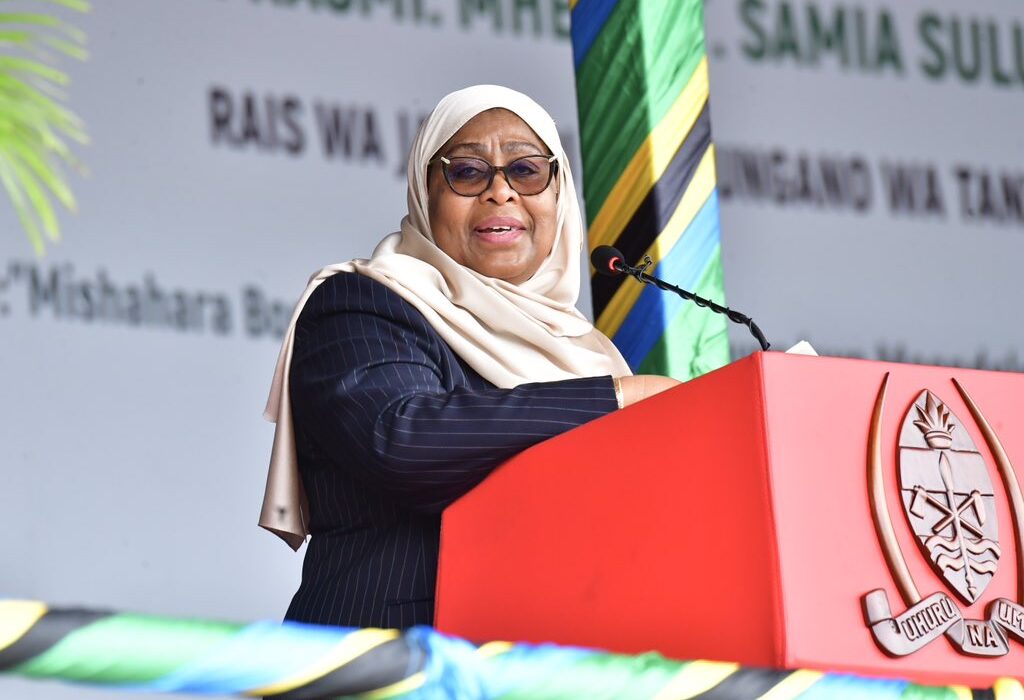Tanzania’s economy has shown remarkable resilience, achieving a real GDP growth of 5.1% in the fiscal year 2023/24, slightly surpassing its projected 5%. This performance, driven by robust contributions from key sectors such as agriculture, mining, construction, financial services, and manufacturing, underscores the country’s commitment to sustaining its middle-income status and presents an enticing landscape for investors, including those from Kenya, according to a Embassy of Switzerland in Tanzania Economic Report 2024.
Under the leadership of President Samia Suluhu Hassan, Tanzania has maintained a steady course towards economic diversification and industrial capacity enhancement. This strategic focus has been pivotal in not only stabilizing the economy but also in laying the groundwork for future growth. The government’s fiscal policies have been instrumental in improving revenue collection and reducing the fiscal deficit, supported by stringent measures to combat tax evasion and enhance public financial management.
Kenyan businesses stand to gain significantly from Tanzania’s positive economic trajectory, especially in sectors where the Tanzanian government has prioritized development. The 2024/25 budget emphasizes sustainable economic reforms and climate resilience, with a projected GDP growth increase to 5.4%. This growth is expected to be fueled by substantial public investments in infrastructure projects such as the completion of the Julius Nyerere dam, the Standard Gauge Railway, and the Liquefied Natural Gas plant. These projects not only promise to boost Tanzania’s economy but also offer lucrative opportunities for Kenyan firms involved in construction, engineering, and related services.
Moreover, Tanzania’s foreign economic policies are evolving to attract more foreign investments and enhance bilateral trade. The integration of regional trade agreements, particularly the African Continental Free Trade Area (AfCFTA), is set to further boost Tanzania’s economic prospects. For Kenyan businesses, this presents a strategic opportunity to explore new markets and partnerships within Tanzania’s growing economy.
The report also highlights potential sectors where Swiss companies are already seeing opportunities, such as construction, agriculture, energy, and tourism. Kenyan companies can similarly explore these sectors, leveraging their regional proximity and understanding of the East African market to establish a foothold in Tanzania. The ongoing improvements in Tanzania’s business environment, coupled with credit expansion for the private sector, are expected to support this positive trend, making it an opportune time for Kenyan businesses to invest.
In the realm of foreign trade, Tanzania continues to see a healthy exchange with global partners. In 2023, Swiss exports to Tanzania amounted to CHF 23 million, while imports from Tanzania, primarily gold, topped CHF 413 million. This trade relationship underscores the potential for Kenyan exporters to tap into similar markets, particularly in sectors where Tanzania has a comparative advantage.
However, while the outlook is positive, the report also cautions about challenges, particularly in terms of debt sustainability. The latest IMF-World Bank Debt Sustainability Analysis indicates that Tanzania’s risk of external debt distress remains moderate, influenced by the lingering effects of the pandemic on exports. Nevertheless, the country’s debt stock remains sustainable, with the government effectively managing its obligations.
For Kenyan investors, the key takeaway is that Tanzania’s economic landscape is ripe with opportunities, particularly in sectors aligned with the country’s strategic development goals. As Tanzania continues to stabilize and grow, Kenyan businesses with the foresight to invest in this market are likely to reap significant benefits. The time is now to explore these opportunities and strengthen regional economic ties for mutual prosperity.





